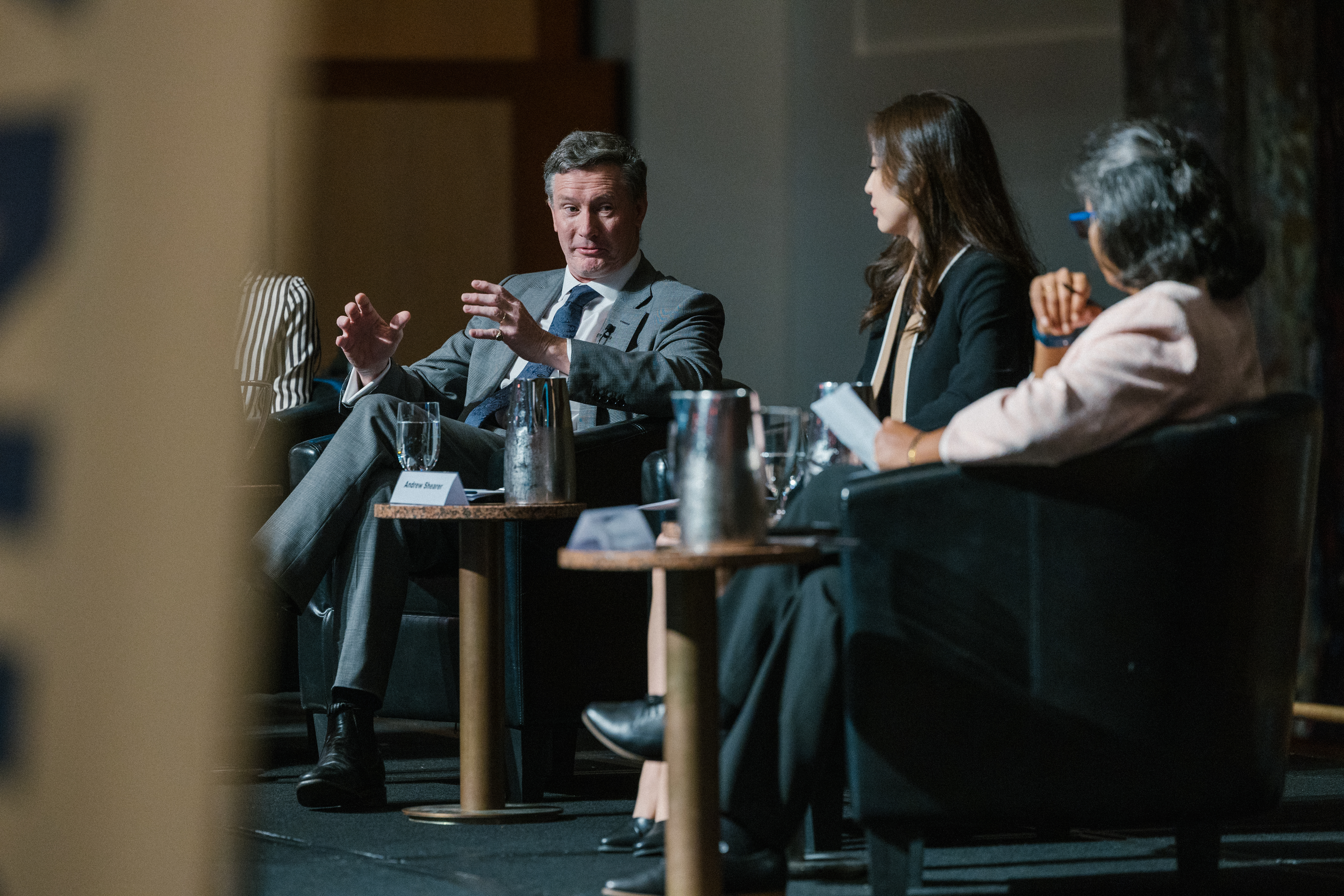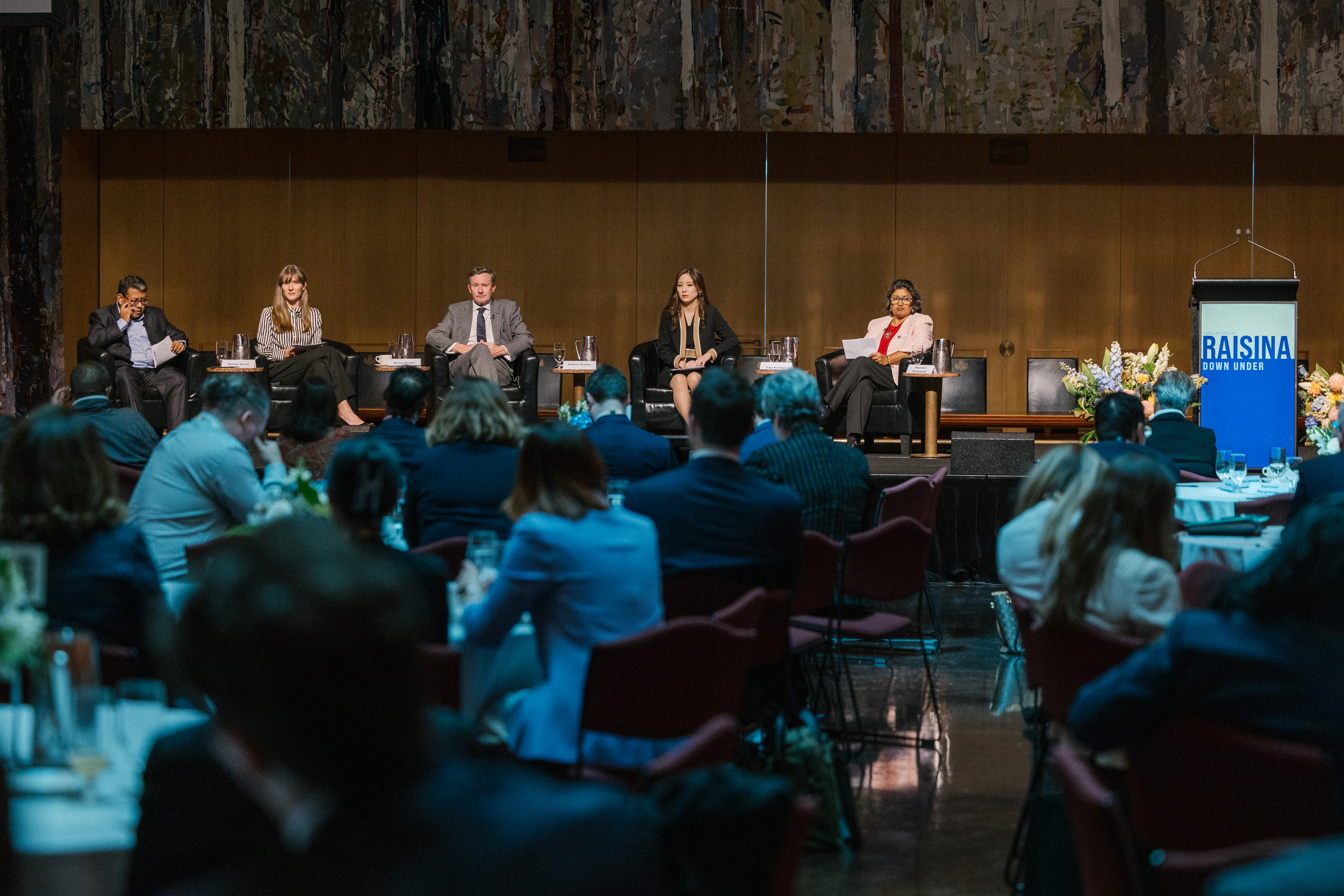The Director-General of National Intelligence has said countries that dominate advanced technology will be best positioned in the ongoing strategic contest in the Indo-Pacific. He made the remarks during the Raisina Down Under Dialogue in Canberra, which focused on geostrategic trends, regional partnerships, and economic security.
Andrew Shearer joined moderator Raji Rajagopalan (ASPI), Mallory Knodel (Founder, Social Web Foundation), Anirban Sarma (Director, Digital Societies Initiative, Observer Research Foundation), Yuka Koshino (Associate Fellow, International Institute for Strategic Studies) in the forum’s penultimate panel, ‘Critical Tech on the Global Chessboard’.
“ONI exists to provide assessments to the Australian Government of political and strategic and economic issues, and I have to say there's no shortage of business right now; there's a lot going on out in the world. And it's also our responsibility to provide assessments on the impact of those trends when they come onshore in Australia, and of course technology's right at the centre of that,” said DGNI Shearer.

He highlighted several global crises—climate change, energy transition, and food insecurity—which he said have put Australia in one of its most challenging strategic positions since 1942.
“I think the largest driver of strategic change is geopolitical rivalry and the re-emergence of geopolitics and its interaction with economics. That's absolutely fundamental to any of the challenges that Australia's facing in our region, globally and also at home, and we are grappling to deal with those changes,” he said.
Mr Shearer singled out technology as the "centre of gravity" when it comes to national power. “It's the main creator of economic power and of military power, and therefore, the country or countries that are able to dominate advanced technology now and in the future are best placed ultimately to come out on top in what I think will be a generational structural contest in the Indo‑Pacific and globally.”

Fellow panellist Anirban Sarma emphasised the importance of partnerships like the Quad—Australia, India, Japan, and the United States—focused on maintaining stability in the Indo-Pacific.
“A priority for the Quad is the issue of resilience in semiconductor supply chains,” said Mr Sarma.
Mr Shearer also warned about the impact of growing ties between China, Russia, North Korea and Iran. “We have to do a better job of disrupting these burgeoning networks; the provision of Iranian drones, provision of North Korean missiles, artillery ammunition and now even combat troops in Europe,” he said.
The panel went on to highlight the increasing complexity of global security and the central role of technology in shaping future power dynamics.
Watch the full panel discussion(Opens in a new tab/window).